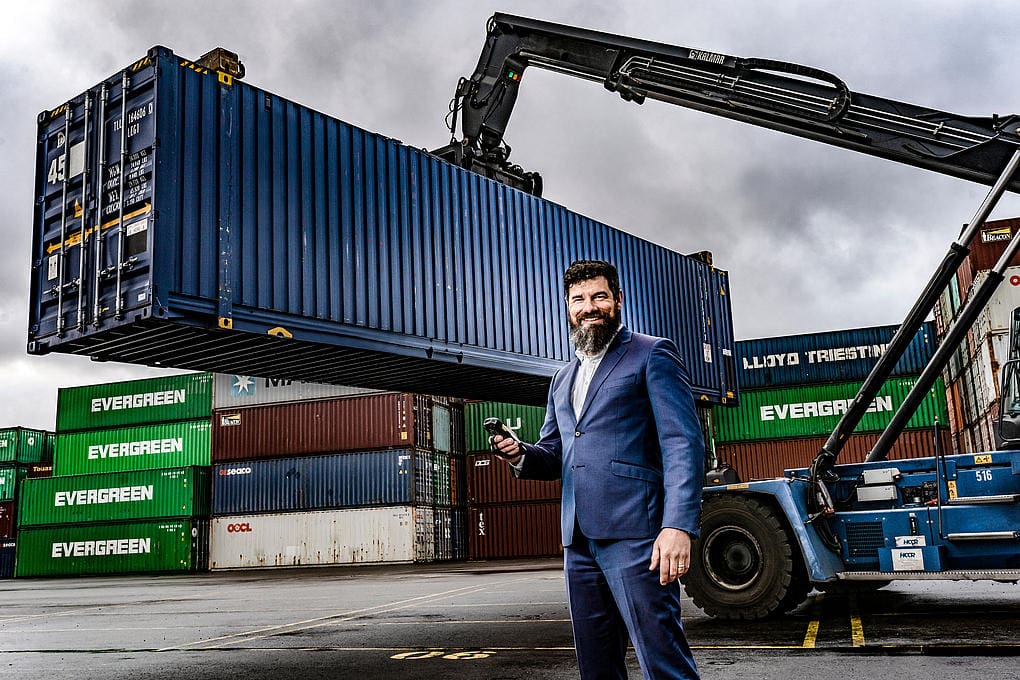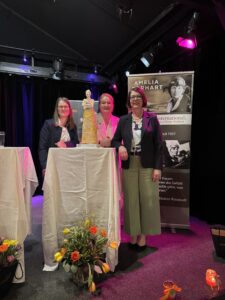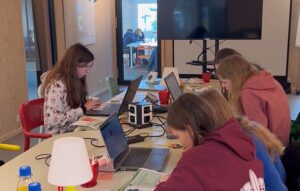The digitalization and automation of the industry is progressing steadily, and Hamburger Container- und Chassis-Reparatur-GmbH (HCCR), a wholly owned subsidiary of Hamburger Hafen und Logistik AG (HHLA), is also taking this important step. As a provider of traditional depot services such as the inspection, repair and cleaning of containers as well as the maintenance of air conditioning systems in reefer containers and the cleaning of tank containers, HCCR has worked with us to take container cleaning to a new, digital level.
Challenges and objectives
Manual container cleaning is currently carried out in traditionally operated washing lines and is largely based on the employees’ many years of experience. The aim of the project was to increase the efficiency of the entire cleaning process and make the processes more transparent. To this end, all relevant data on the washing process was to be digitally recorded, evaluated and processed. The challenge was to find a solution that had low hardware and software requirements, could be set up quickly and was easy to use.
Implementing digitalization with the Revolution Pi
The first phase of the project involved recording the relevant parameters for the washing process. These include water temperature, water pressure, required washing time, consumption of water and detergents as well as the type of soiling. By using appropriate sensors, these values could be reliably measured and digitally recorded. When integrating the sensors, the local conditions were first analyzed, disruptive factors removed and potential data acquisition sources evaluated.
Revolution Pi modules from KUNBUS were used as the technical solution. These industrial-grade open source IPCs are based on the Raspberry Pi and enable simple, flexible data acquisition and further processing. A total of several Revolution Pi Connect+, Revolution Pi DI and Revolution Pi AIO modules were installed. The Revolution Pi Connect+ served as an IoT gateway to transfer the collected data to the cloud. The cloud-based data collection was the cornerstone for the subsequent data analysis and the development of an app for HCCR.
Development of an intelligent app for process optimization
With the collected data, we were able to develop an app that digitally maps and optimizes the cleaning process. The data we collected allowed us to develop a machine learning algorithm that selects the most efficient washing program based on external conditions such as temperature and humidity. This ensures that each container is cleaned with minimal use of resources. In addition, employees can enter comments directly in the app, for example on particular soiling, which digitizes an important transfer of knowledge.
Those responsible now have an overview of resource consumption at all times: How much water was used? How much energy was used? How much cleaning agent was used? This transparency enables precise billing and opens up potential for new business models.
Overcoming technical hurdles and integrating old machines
The integration of existing, outdated machines posed particular challenges. Old PLC systems had to be installed, and the power boxes were confusing and the wiring diagrams were outdated and inaccurate. Despite these hurdles, we were able to successfully integrate the Revolution Pi modules and the existing sensors and thus also obtain relevant data from the older machines.
Another problem was the often heavily soiled load of containers, including food residues and other residues. Thanks to our solution, the cleaning staff were able to see in advance which loads were being transported and which cleaning agents and programs were best suited to them.
Further digital solutions for process optimization
In addition to digitizing the car wash, we have optimized the entire process by digitizing and integrating order acceptance and job management. This includes adapting and integrating existing management services to make everyday work at HCCR easier.
Conclusion and outlook
With the successful digitalization of container washing, HCCR has taken a major step towards increasing efficiency and reducing costs. By implementing modern IoT technologies and developing tailor-made software solutions, the dependence on manual processes has been reduced and a valuable transfer of knowledge has been realized. In the medium term, research institutes will use the data to further optimize the washing programs and thus save time, money and raw materials.
The project impressively demonstrates how modern, efficient and sustainable processes can be created from traditional industry through targeted digitalization. We look forward to continuing to support HCCR in the further optimization and development of new, innovative solutions in the future.



